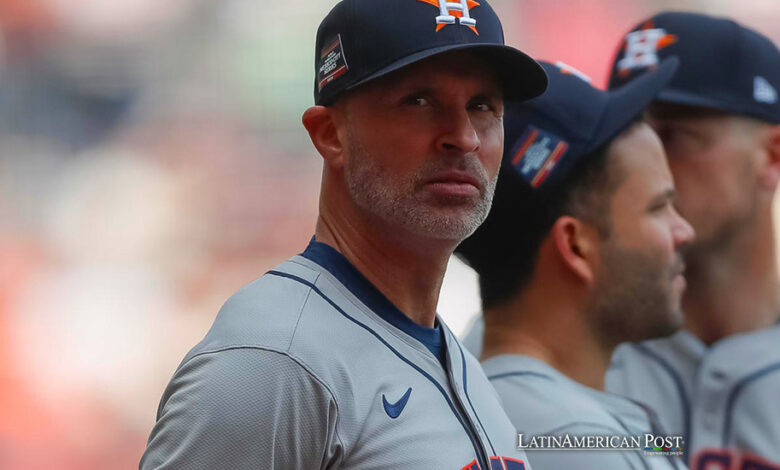Puerto Rican Joe Espada: A Latino Manager’s Journey in MLB

Joe Espada, the Puerto Rican manager of the Houston Astros, leverages his Latino heritage as a unique advantage in Major League Baseball, fostering deeper connections with Spanish-speaking players and enriching team dynamics.
In the competitive world of Major League Baseball (MLB), Joe Espada stands out for his strategic skills and cultural insights. As a Puerto Rican at the helm of the Houston Astros, Espada brings a distinct advantage—his deep understanding of Latino culture and language, which is crucial for connecting with many of his players.
Embracing Latino Leadership in Major League Baseball
“We Latinos have our own culture and language; as a Latino, I have the gift of communicating more easily with them. Communication is essential when working with Major League players. That’s why God gave us two ears and one mouth,” Espada explained to EFE.
Espada is among six Latino managers who began this year in the Majors, representing a shift toward greater diversity in leadership within the sport. His peers include Puerto Rican Davey Martínez with the Washington Nationals and Alex Cora with the Boston Red Sox; Cuban Pedro Grifol with the Chicago White Sox; Dominican Oliver Mármol with the St. Louis Cardinals; and Venezuelan Carlos Mendoza with the New York Mets. Each brings their unique perspective and communication style deeply rooted in their Latino heritage.
Espada, who never debuted in the majors as a player in Houston, manages some of the team’s top Latino stars, such as Venezuelan José Altuve and Cuban Yordan Álvarez. Their presence highlights the increasing influence of Latin American players in the MLB, which reported this year that out of 264 non-U.S.-born players on opening day rosters, 108 were from the Dominican Republic, 58 were from Venezuela, 18 were from Cuba, 17 were from Puerto Rico, and 12 from Mexico.
“Communicating with Americans is different because of their culture. The way to connect with them is different; you have to get to know them, understand where they come from, and what they like off the field to have conversations beyond baseball. It would help if you listened before you speak,” added Espada.
Espada’s path to becoming a manager in the Major Leagues was not straightforward. He spent a decade being overlooked by general managers in multiple interviews for managerial positions. He describes himself as a player-focused strategist who believes in close communication with his team.
“I’m a hands-on manager. It’s important to always communicate with the players and share a meal or coffee. Finding ways to connect with them is crucial,” he noted.
A Path to Managerial Success
Despite the challenges of being hired as a manager and the fact that the six Latino managers represent a minority among the 30 MLB teams, the 48-year-old Puerto Rican denied experiencing discrimination due to his ethnicity.
“It’s about finding a place where there is mutual chemistry between the manager, the owner, and the director. In the opportunities I had to interview, they chose not to pick me because they were looking for something different. I don’t see it as discrimination,” he stated.
Before taking over his role with the Astros, Espada served as the bench coach under American managers AJ Hinch and Dusty Baker, with the latter leading the team to a World Series victory in 2022.
“My dream is to keep the door open for other Latino managers. My advice to them is never to lose faith, to communicate effectively, and above all, to work hard to catch the attention of the general managers,” Espada concluded.
Also read: Brazilian Adventure Has Packers-Eagles Clashing Amidst Color Conundrum
This approach by Espada and other Latino managers underscores a broader movement in MLB towards embracing cultural diversity, not just among players but also within the ranks of its leadership. By fostering an environment where the unique experiences and perspectives of Latino managers and players are valued, MLB is working to enrich the sport, making it more inclusive and reflective of its diverse fan base. This progressive shift is enhancing team dynamics and setting a precedent for future generations in baseball.




